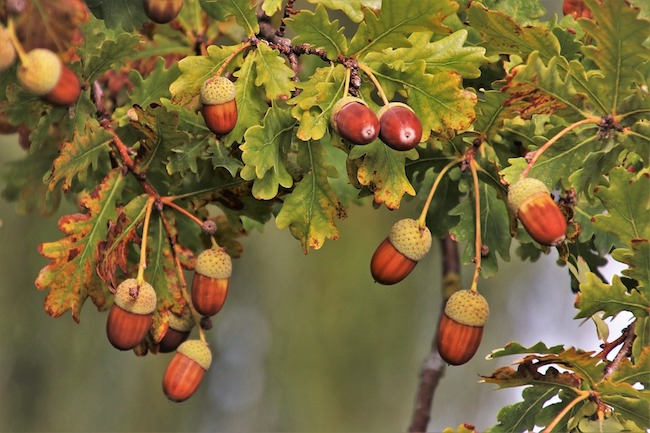How To Cook, Eat And Even Make Acorn Coffee by: Tricia Drevets for Off The Grid News
I have had the pleasure of having some mighty oak trees in my life. The beautiful trees have provided shade to sit under, branches for my children to swing from, plenty of leaves to rake in the fall and quiet beauty and strength. They also have provided untold amounts of acorns!
As another fall arrives, I soon will hear the sound of acorns hitting my deck and of squirrels scampering around gathering the bounty under my trees. However, as I search to make better use of my resources, I began wondering if I am neglecting a treasure right there in my yard. Is there anything I can do with all those acorns?
After doing a little research, I discovered that Native American tribes used acorns as one of their primary staple foods. In much the same way they used corn, they used ground acorn nutmeat to make a meal, or flour, for baked goods. They even used them to make acorn coffee.
Acorns
Acorns are rich in Vitamins B12, B6, folate riboflavin, thiamin and niacin. They also contain iron, calcium, magnesium, sodium, phosphorus, copper manganese and zinc, and are good sources of protein and fiber. Naturalist John Muir called the acorn cakes he made the most “strength giving” food he had ever eaten. But before you start munching on your own baskets of acorns, there is some information you need to know.
First, green acorns are unsuitable for eating. You may harvest mature green acorns to ripen in a clean, dry place, however. Also, all raw acorns contain high amounts of tannic acid, which gives them a bitter taste and which can be toxic to humans and many animals if consumed in large quantities. White oak acorns generally contain fewer tannins than red oak acorns.




